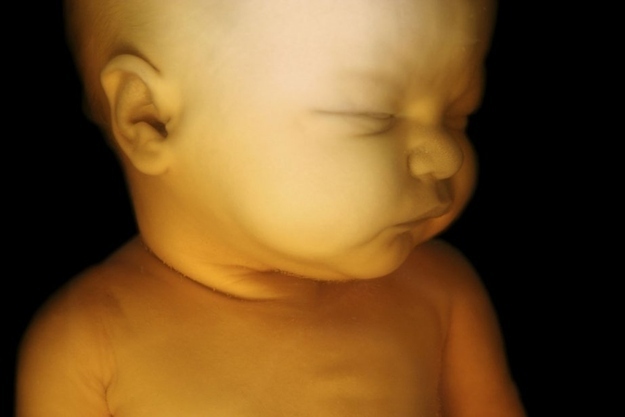Wyoming has become the first state to specifically ban abortion pills after Wyoming Gov. Mark Gordon signed a bill late Friday to prohibit them.
Wyoming already has a law that bans abortions, but a judge blocked it last year and lawmakers wanted to ban the pills while the state fights to uphold that legislation and to add to it.
The legislation Gordon signed would prohibit dangerous chemical abortion drugs, making Wyoming the first state in the country to pass legislation prohibiting the prescription of the dangerous abortion drug regimen that can cause hemorrhaging, the need for surgery and even death.
SBA Pro-Life America’s Western Regional Director Adam Schwend said the bill is a necessary step to protect women and children.
“The 2023 legislative session is ending on a clear note that Wyoming values all human life, born and unborn, and the wellbeing of women. SBA Pro-Life America applauds every lawmaker who played a role in advancing safeguards against dangerous chemical abortion drugs, extending medical coverage for moms to a year after childbirth and protecting unborn children of all ages,” he said. “We applaud legislators for being champions for the most vulnerable among us and advocates for the health, safety and security of mothers.”
SUPPORT LIFENEWS! If you want to help fight abortion, please donate to LifeNews.com!
Sen. Tim Salazar sponsored the bill, which will prohibit prescribing or distribution of any drug for the purpose of causing an abortion. It would not apply to contraceptives or treatment for miscarriage, and includes an exception for life and health of the mother as well as rape and incest.
The bill states, “… no person shall manufacture, distribute, prescribe, dispense, sell, transfer or use any chemical abortion drug in the state for the purpose of procuring or performing an abortion.” Exceptions are allowed in cases of rape, incest, miscarriages and when the mother’s life is at risk.
Violators could face up to six months in jail and up to $9,000 in fines; however, mothers cannot be prosecuted.
“The intent of SF 109 is to protect the unborn from chemicals that seek to destroy human life,” Salazar said in a statement to Students for Life Action. “By passing this legislation, Wyoming will make a clear statement that we wish to protect the unborn and women from these dangerous drugs that are used in the taking of an unborn child’s life through abortion.”
Wyoming leaders currently are fighting in court to enforce the trigger law, which went into effect only briefly after the U.S. Supreme Court overturned Roe v. Wade in June.
In August, a judge blocked enforcement of the law, agreeing with pro-abortion groups that the abortion ban may cause irreparable harm to pregnant mothers and abortionists.
Wyoming is one of several states that are battling in court to legally protect unborn babies from abortion. Currently, 14 other states are enforcing pro-life laws that ban or strictly limit abortions, and researchers estimate tens of thousands of unborn babies’ lives are being saved.
In June, the Supreme Court overturned Roe in a historic victory for life and returned the power to legislate abortion to the people. Because of Dobbs v. Jackson, states may protect unborn babies from abortion for the first time in nearly 50 years.
All pro-life laws allow abortions when the mother’s life is at risk and, in some states, cases of rape and incest. These make up a very small percent of all abortions in the U.S. Research from the Charlotte Lozier Institute found about 96 percent of abortions are for purely elective reasons.
The state Department of Health reported 98 abortions in 2021.
The FDA has linked mifepristone to at least 28 women’s deaths and 4,000 serious complications. However, under President Barack Obama, the FDA stopped requiring that non-fatal complications from mifepristone be reported. So the numbers almost certainly are much higher.
Studies indicate the risks are more common than what abortion activists often claim, with as many as one in 17 women requiring hospital treatment. A recent study by the Charlotte Lozier Institute found that the rate of abortion-related emergency room visits by women taking the abortion drug increased more than 500 percent between 2002 and 2015.
Another new study from the University of Toronto, “Short-Term Adverse Outcomes After Mifepristone–Misoprostol Versus Procedural Induced Abortion,” published in the Annals of Internal Medicine, found that one in ten women who took the abortion pill had to go to the emergency room, according to Pregnancy Help News.
In England, which began allowing mail-order abortion drugs around the same time as the U.S., new investigations show a huge increase in ambulance calls and reports of coercion and abuse. There also have been reports of late-term babies being born alive at home as a result of mail-order abortion drugs because their mothers did not realize how far along they were.








